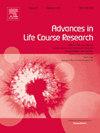How conflict shapes the impact of infant and child mortality on fertility in the Democratic Republic of the Congo
IF 3.4
2区 社会学
Q1 Medicine
引用次数: 0
Abstract
This study investigates the impact of infant or child mortality and its interaction with conflict exposure on fertility in the Democratic Republic of the Congo (DRC). Birth histories of 13,859 married women from the 2007 and 2013/2014 Demographic and Health Surveys were analyzed alongside conflict data from the Uppsala Conflict Data Program. A series of conditional frailty survival models were estimated. Results showed that women who lost an index or non-index child during or before the birth interval were at higher risk of giving birth. These findings provide evidence for an immediate volitional replacement effect, i.e., a deliberate or psychological effort to replace a lost child as soon as possible, as well as a long-term replacement effect reflecting the desire to achieve an ideal family size. The immediate replacement effect was more pronounced among women exposed to conflict, while the long-term effect was weaker. These results, which are robust to alternative measures of conflict, reflect how families respond to infant mortality and conflict. In the short run, conflict increases the urgency to replace deceased children, supporting the fast life history or bereavement theories. By contrast, in the long term, conflict disrupts reproductive planning—likely due to resource scarcity, uncertainty about the future, and other constraints—thereby supporting the economic theory of fertility. Short-term interventions should prioritize improving child health through nutrition and immunization, providing mental health support, and offering culturally sensitive reproductive counseling. In contrast, long-term interventions must focus on economic support and family planning programs to empower women in conflict zones.
冲突如何影响刚果民主共和国婴儿和儿童死亡率对生育率的影响
本研究调查了刚果民主共和国(DRC)婴儿或儿童死亡率及其与冲突暴露对生育率的影响。研究人员分析了2007年和2013/2014年人口与健康调查中13859名已婚妇女的出生史,并分析了乌普萨拉冲突数据方案中的冲突数据。估计了一系列条件脆弱生存模型。结果显示,在生育间隔期间或之前失去指数或非指数孩子的妇女分娩的风险更高。这些发现为即时的自愿替代效应提供了证据,即一种有意或心理上的努力,以尽快取代失去的孩子,以及一种长期的替代效应,反映了实现理想家庭规模的愿望。在面临冲突的女性中,即时替代效应更为明显,而长期影响则较弱。这些结果对冲突的其他衡量标准是可靠的,反映了家庭如何应对婴儿死亡率和冲突。在短期内,冲突增加了替换死去的孩子的紧迫性,支持了快生活史或丧亲理论。相比之下,从长远来看,冲突破坏了生育计划——可能是由于资源短缺、未来的不确定性和其他限制因素——从而支持了生育的经济理论。短期干预措施应优先考虑通过营养和免疫、提供心理健康支持和提供文化敏感的生殖咨询来改善儿童健康。相反,长期干预措施必须侧重于经济支持和计划生育项目,以增强冲突地区妇女的权能。
本文章由计算机程序翻译,如有差异,请以英文原文为准。
求助全文
约1分钟内获得全文
求助全文
来源期刊

Advances in Life Course Research
SOCIAL SCIENCES, INTERDISCIPLINARY-
CiteScore
6.10
自引率
2.90%
发文量
41
期刊介绍:
Advances in Life Course Research publishes articles dealing with various aspects of the human life course. Seeing life course research as an essentially interdisciplinary field of study, it invites and welcomes contributions from anthropology, biosocial science, demography, epidemiology and statistics, gerontology, economics, management and organisation science, policy studies, psychology, research methodology and sociology. Original empirical analyses, theoretical contributions, methodological studies and reviews accessible to a broad set of readers are welcome.
 求助内容:
求助内容: 应助结果提醒方式:
应助结果提醒方式:


